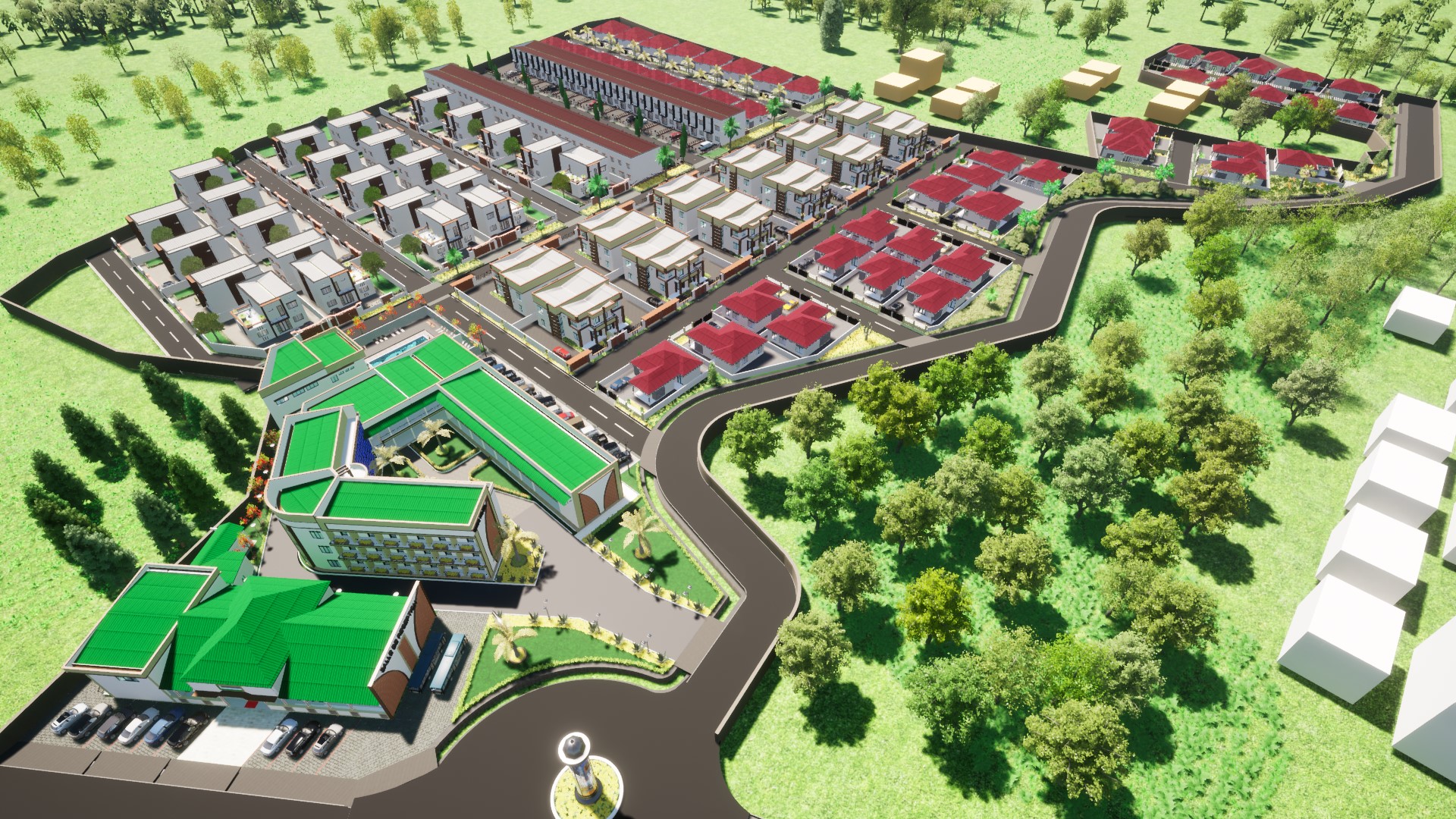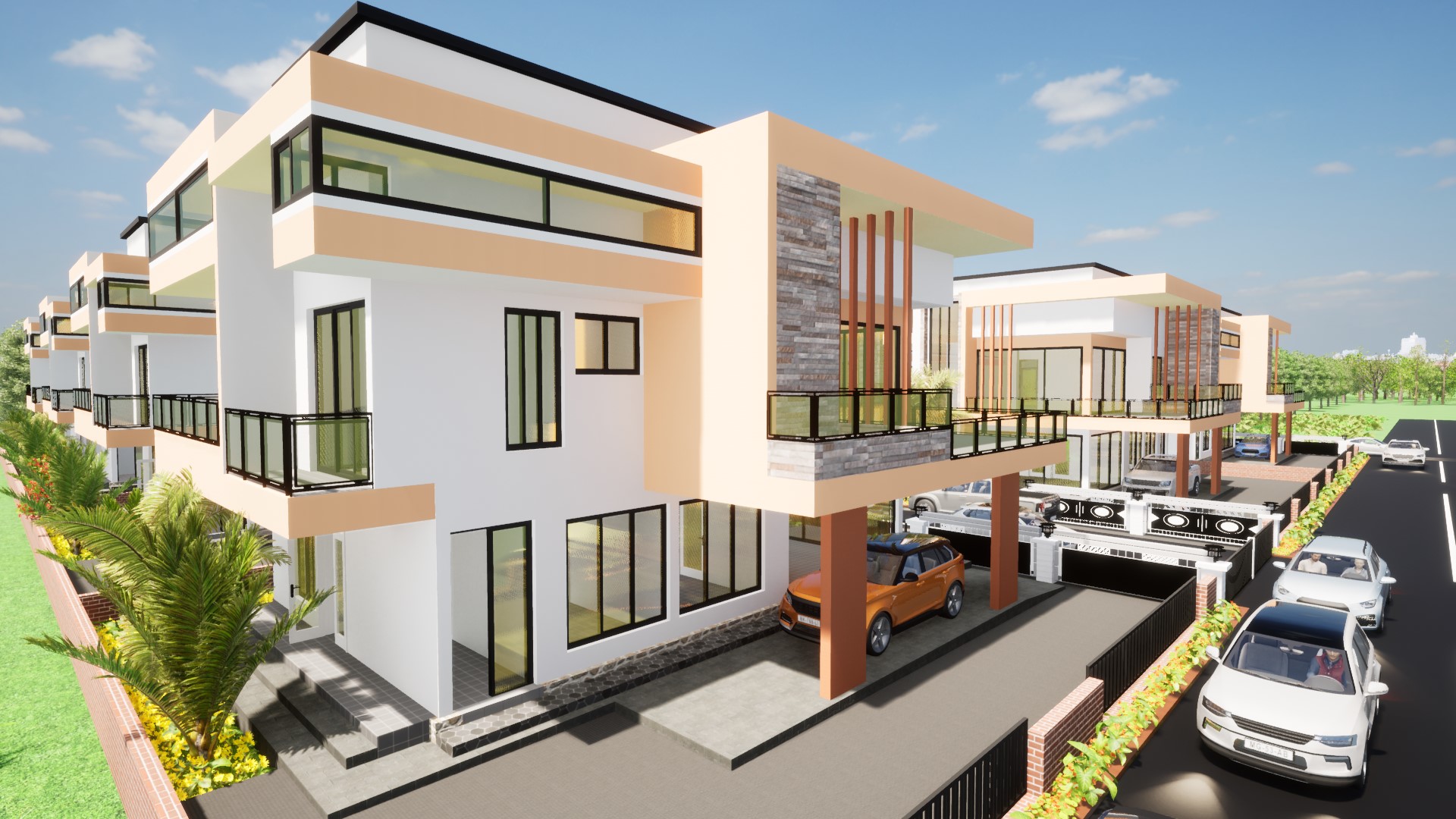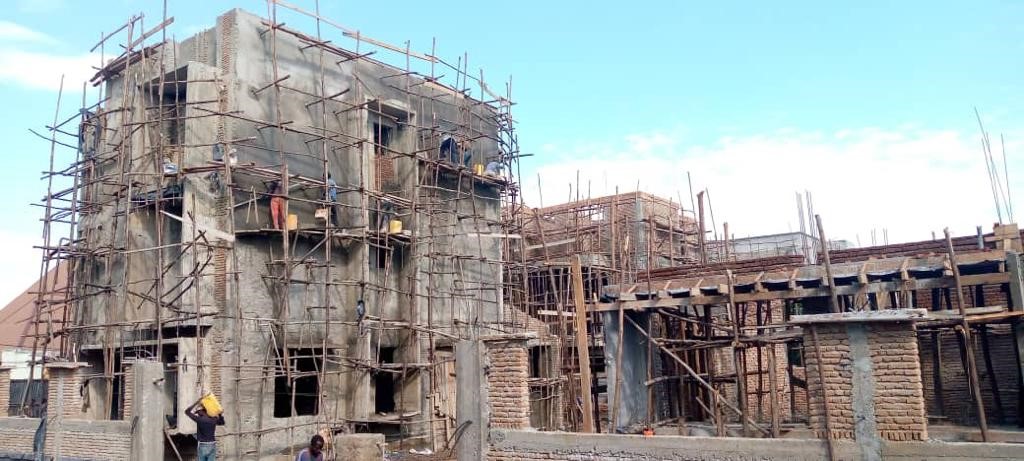BMBC is the very first construction company in the history of Burundi to run concurrently several major housing projects.

Despite existing since the colonial period and undergoing changes in acquisition and ownership approaches, public housing has remained underdeveloped in Burundi.
Historically, major public housing projects that can be traced in Bujumbura and minor ones in provincial towns were almost exclusively reserved to members of public service.
Factors related with low income of the majority of urban households, limited attractiveness for private investment including from financial institutions, exacerbated by the eruption of the destructive civil war 1993 almost halted public housing initiatives in the country.
Currently, land scarcity as well as the deeply deep-rooted tradition of Burundians to own a parcel and a house continue to make public housing a testing enterprise.
Today, the housing industry is gradually gaining momentum in Burundi after modern projects were initiated by BMBC and a few other promoters. The announced government public housing projects in at least two localities in Bujumbura will certainly also give a new impetus to the sector.

Currently, BMBC is implementing three major housing projects in Gahahe, Kiyange (Mirroir) and Tenga areas, mostly in financial partnership with the Banque de Gestion et de financement (BGF). There is no indication that there have existed works of that scale in the past of this country.
The combined budget for the three projects is estimated at around 80 billion Burundi francs. They comprise VVIP, VIP and standard houses and apartments.
Through the implementation of the projects, BMBC has acquired more experience in planning, implementation, management and marketing of housing projects than any other construction establishment in Burundi.
Such as experience coupled with considerable technical capacity allows BMBC to implement projects in record durations.
Moreover, BMBC has distinguished itself from other housing promoters through ensuring management, technical and operational autonomy along the project planning and implementation process, with the involvement of financial partners dwelling mainly on risk management.

The collaboration with important financial institutions such as BGF has particularly helped members of the diaspora who, for long, have experienced difficulties accessing funding for their projects.
Greetings from the CEO
BMBC GROUPOur contacts+257 79 500 227info@bmbc.bi Open 24/24hQ.Kigobe, Boulevard Mwambutsa, Immeuble Africana House
© 2023 BMBC GROUP Design DSCOMPANY


 Français
Français Ikirundi
Ikirundi